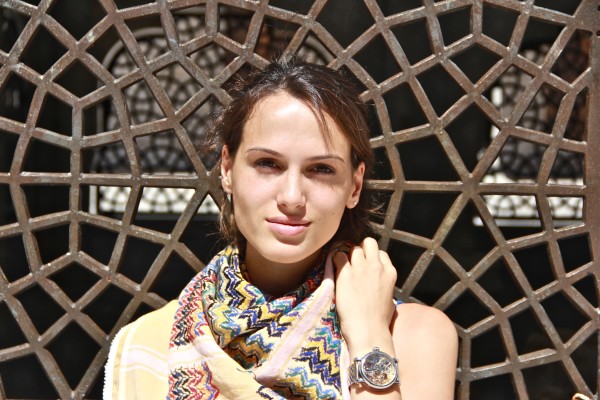
14 Aug The Short Version: Should Voting Be Mandatory?
The point of it all is to break down the headlines, determine why an issue is important and reveal the best arguments on each side of the story. Last week, Cleo Abram looked at the Bernie or Bust movement and it implications on the general election. This week the subject is voting: If jury duty is mandatory, why isn’t voting?
“This topic was inspired by a call with a political strategy team in Australia who worked on the country’s recent elections. Their campaign was different than any I’d ever heard about—because they have mandatory voting. How would that impact American elections?,” said Cleo.
Note: If you have missed any of Cleo’s blogs, just go to our Home Page, type “The Short Version” into Search (magnifying glass icon) and poof, like magic, all her blogs will appear.
“I love getting feedback every week—thank you! If you want come hang out, debate a thing or two, and meet other Shorties, check out Short Events,” says Cleo.

Cleo Constantine Abram of the “Short Form,” offering densely packed spins on issues of national and global importance.
What’s happening?
If jury duty is mandatory, why isn’t voting?
Australia took on this question in 1924, passing compulsory voting in federal elections. The move was prompted by what Australian legislators considered an alarmingly low voter turnout of 59% in 1922.
In comparison, voter turnout in the United States falls between 48% (in 1996) and 53% (in 2012).
Why is it important?
Though it is highly unlikely the U.S. would pass mandatory voting laws, Australia’s example demonstrates the importance of how we practice our democracy—who votes, who doesn’t, and how it affects the country. President Obama has spoken about the idea, saying, “Other countries have mandatory voting. It would be transformative if everybody voted—that would counteract money more than anything.”
However, the obvious question is: how do you enforce it? For citizens who do not vote, Australia mandates they provide “a valid and sufficient reason” or pay a $20 fine. But with any enforcement mechanism, a government would be expecting people to take precious time off work and punishing them (in ways that affect some more than others) if they do not.

Mandatory voting around the world
Debate it!
Should voting be mandatory in federal elections?
Eight+ years ago, Telluride Inside…and Out began as a lifestyle webzine. Today, in the full knowledge that Telluride is a window on the world, we continue to bring the “zazz” (short for “pizzazz) of the region to a local, national, and global audience by covering everything from Telluride’s robust cultural economy – major events and festivals – to health and fitness and outdoor adventure. When Telluride travels, we write about places to go, people to meet too. (That’s part of the “Out” part of our handle, the other, obviously, Outdoors.)
And now, this new weekly column, “The Short Version,” which offers simple summaries of issues of national and global importance. (Though we won’t go political, or rather we won’t show bias in the upcoming election.)
“The Short Version” is written by Cleo Constantine Abram, the daughter of Telluride locals Eleni Constantine and Jonathan Abram (and therefore an honorary local and regular visitor) and a digital strategist.
Why “The Short Version”? Because, though we live in Shangri-La, our bubble is not impermeable and the rest of the world is only a click away. Because there is no inconsequential action; only consequential inaction. And because information is power in a moment so many of us are feeling powerless.
More about Cleo Constantine Abram:

Cleo grew up in Washington D.C., lives in New York City, and loves to visit her parents in Telluride. She authors “The Short Version,” a newsletter that explains each week’s most important issue and both sides of the debate around it.
Cleo is a digital strategist at Precision Strategies, a political consulting firm born of the Obama 2012 presidential campaign.
Cleo’s work focuses on ways to share, educate, and inform using online platforms. While in college at Columbia University, she guided the school’s entrance into online education through her role as the youngest elected representative to the Columbia Senate, which makes university-wide policy.
She continued her work on online education at TED-Ed, the educational branch of the nonprofit, building new programs and online tools to support high school teachers worldwide.
Continuing her work with TED, Cleo founded and led an early TEDx conference, the organization’s community-specific series.
Most importantly, Cleo loves to ski.


Ilene Barth
Posted at 14:10h, 14 AugustIn practice, jury duty is far from compulsory in the U.S. Whole categories of citizens are excluded either apriori or upon simple request, i.e, Americans residing abroad (including members of the armed services), custodial parents of children under 16, lawyers and others connected to the judicial system, essential workers. And any eligible citizen can effectively exclude him or herself from jury service by avowing bias or expressing lack of confidence in the justice system or lack of availability for one or several reasons.
Making voting compulsory is not only unbecoming to a democracy but also intensifying
hardship on the millions who do not vote because the voting process in intimidating and/or polling places are difficult for them (and their young charges) to reach or are otherwise inaccessible. Genuine no candidate preference is also a valid reason to abstain. If higher numbers of Americans voting is a desirable goal—and I think it is—then the good lies not only in political parties promoting more able and attractive candidate but also making it possible for the least able among the governed to vote.